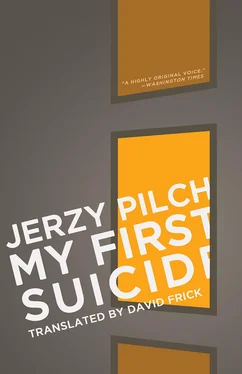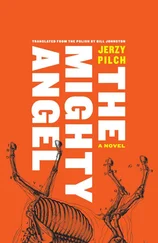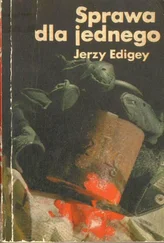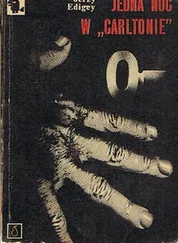When he died a year after Mila’s death, his identical twin brother came to the funeral. I suppose they didn’t get along, because I had never seen the twin before. Supposedly he lived in Gdynia. Or on some other moon. Actually, I don’t have to elaborate on the images and circumstances. Just imagine the funeral of a twin, which is attended by the other twin. Maybe you have been at such a funeral? It is obvious what sort of irresistible thoughts one has then. And what is more, I was seeing the other Pospiszil for the first time in my life, and I didn’t really know that he was — perhaps didn’t even really know what it was: twinness. My Aunt from Wąwóz had twins, but they weren’t similar. And here you had the identical voice, the identical motions, height, gait, hair, even clothing — all identical. It couldn’t be anything other than that the corpse had crawled out of the coffin and was standing over its own grave. Years later I feel like laughing, but then? Horror! And there were the amazing stories: that the deceased — if he was deceased, if the coffin wasn’t empty — had died horribly, how he howled, cursed, blasphemed. Horror! Fear, genuine, piercing to the marrow like frost. Fear that somewhere here, over the cemetery on Gróniczek Hill, emissaries of hell were circulating, that, granted, Father Kalinowski conducted the right services, that we sing and pray, but that the devil already has everything in his care. Years later — when Father died and over his grave a black, July downpour broke out — I recalled a shadow of that fear.
III
On the photo hanging over the little chess table, black clouds and the black branches of pine trees bend over the wedding guests. Black pine needles rain down upon my Grandma’s bonnet, but she doesn’t know about it. Leaning on the distinctive shoulder of the young butcher, she has before her yet a year of faith in love, a year of faith in the world’s sense, a year of faith in God’s goodness. In nine months, she would give birth to a son. In twelve months, on a sunny September afternoon, someone would drive up in front of the house on a motorcycle. Someone with dark folded wings? Most likely yes, although this isn’t all that important. What is important is the motorcycle — a DKW Sport 500, the 1929 model. A black, shining spider, which could reach the unprecedented speed of seventy-five miles per hour.
As late as the fifties, when some stranger from Katowice left a Junak in the courtyard, the neighbors gathered, and the Nikandy boys, by some miracle (to tell the truth, by using a common nail), got it started and made laps, there was a great spectacle. And twenty years earlier? Before the war? Almost ten years before the arrival, with an infernal clatter, of motorized Wehrmacht troops through the Kubalonka Pass? In the year of Our Lord one thousand nine hundred and thirty-two? At that time, the good citizens of Wisła didn’t gather out of curiosity at the sound of an approaching motorcycle. They locked themselves in their houses, maybe they even barricaded themselves. They definitely prayed.
O unhappy Gustaw Branny! Why didn’t you hide in the back room? Why did you allow yourself to be tempted by the devil on the motorcycle? Why did you want to go for a ride? O master butcher, who obtained all those licenses from the Butchers’ Association in Skoczów! Granted, if you had hidden and not set off on your last ride, I wouldn’t be singing you this little song, because neither I nor my Mother would be in this world, but Grandma would be happy. Was that the reason almighty God, or the devil on a motorcycle, smashed your skull — so that my life might be possible? And it is possible only because I defend myself from its anguish by writing? Are those the sorts of pranks you have in Your head, Lord God?
For half her life, Grandma told the story of the scene of his departure. Gustaw sat on the motorcycle, they set off in the direction of Oasis , he turned back, waved, and that was that. I heard this sentence a thousand, a billion times. Nothing more. Gustaw sat on the motorcycle, they set off in the direction of Oasis , he turned back, waved, and that was that. Her story about the tragedy was a single sentence. Never a single word about who came running with the news. Never a single word about how she flew to that bend in the road. Never a single word about the stump that Gustaw’s unhappy head hit. Never a single word about how he looked in the coffin. Never a single word about washing and dressing the corpse. Never a single word about the funeral. I hear her wailing in the ice-cold house of Wisła butchers, and she recalls the wailing that was the omen of his death. She was sure that it had been caterwauling. The windows of the back room look out on a garden full of wild apple trees, tomcats from the entire Principality of Cieszyn constantly prowl there, and often, in their amatory frenzies, bawl their heads off precisely like year-old infants. Six weeks before Gustaw was killed, you could hear the screaming cry of a child in the back room. She was certain that it was tomcats’ laments, although something didn’t fit. Only when she went in there on the evening after the wake did she recall her own anxiety.
In the back room stands a stove made of cornflower blue tiles, a gigantic armchair, a pear wood wardrobe, a double bed, a small table covered with a lace table cloth. On the wall hangs an image of a Guardian Angel and a Becker clock. You couldn’t hear it ticking. It is quiet, dreadfully quiet. My twenty-five-year-old Grandma looks through the double window at the outline of Jarzębata Mountain. Never would she put it this way, but her skin is dead, her soul is in ruins, her heart is burnt to ashes. Not only is the Jarzębata beyond the double window. The entire world is beyond the double window. She herself is beyond the double window. Her legs, her arms, her head — they have been separated from her; she walks, sits, moves her arms, sees, and hears only because, with her last reserves of strength, she commands her legs and arms to move, her eyes to see, and her ears to hear. And now there is quiet over the entire field, now it is quiet like in Gustaw’s coffin. Even the tomcats have fallen silent, they aren’t in the garden, the child isn’t crying.
Suddenly, it was as if a windowpane had shattered, as if the band at a fair had started to play. Suddenly she hears that cry, suddenly she hears the cry from six weeks before and recalls that it hadn’t come from the garden, but as if from behind the armchair, and the armchair doesn’t even stand under the window. And she recalls that her heart shuddered then, because that sound was not only unusually loud, it was also horribly distinct; it was full of syllables, as if a crying baby were saying something, shouting something, as if it wished to say, to shout out some word. And with all her strength, she recreates that meowing, that whimpering, which was not meowing and was not whimpering. God, it is good that You give me signs, but why are they so unclear? Grandma Zuzanna listens intently and with a sort of tension, as if she were praying for Gustaw’s resurrection and had a chance at it. She listens and suddenly hears, suddenly she hears precisely and runs through the entire house, and just as she was standing there in her Silesian attire, which she hadn’t yet changed after the funeral and after the wake, she runs to the stable, leads Fuks out, harnesses him to the britzka, which is standing by the shed, opens the gate, and off she goes! Giddy-up! Giddy-up! Fuks! Giddy-up to Wierchy!
I’m not able to describe her life as I would wish. I don’t know how to recreate it day by day, page by page. Isolated images flare up, and I approach them, but I, too, am helpless. The lonely ride of Grandma Zuzanna at dusk through a lifeless prewar Wisła is like a Handel aria. A few hours after the funeral of her beloved, a young woman stands on the rushing carriage, turns onto the bridge, drives into the dark valley, a gust ripped the scarf from her shoulders and unbraids her plait. Fuks gallops lightly, the wheels rattle, the river flows toward them, and above them, in the dark blue sky, an angel sings: Lascia ch’io pianga mia cruda sorte, e che sospiri la libertà .
Читать дальше












